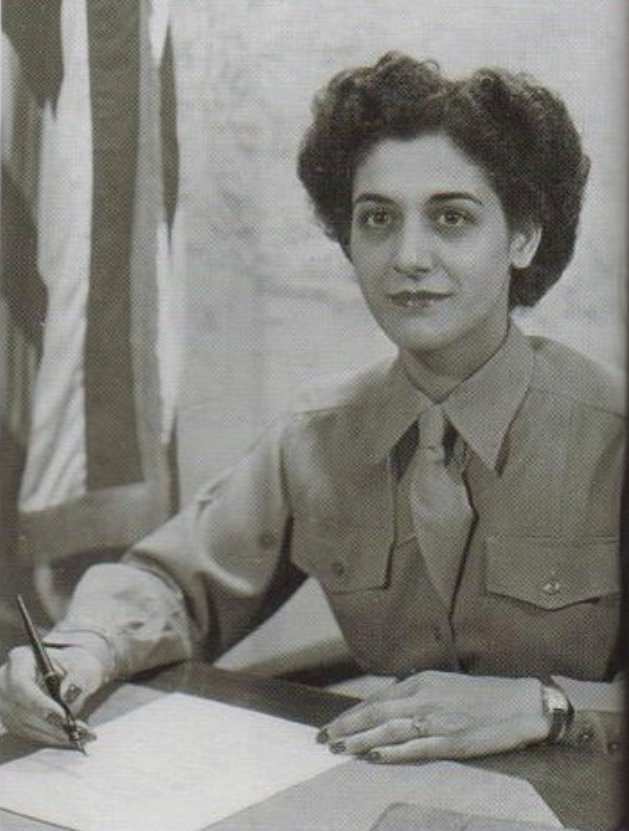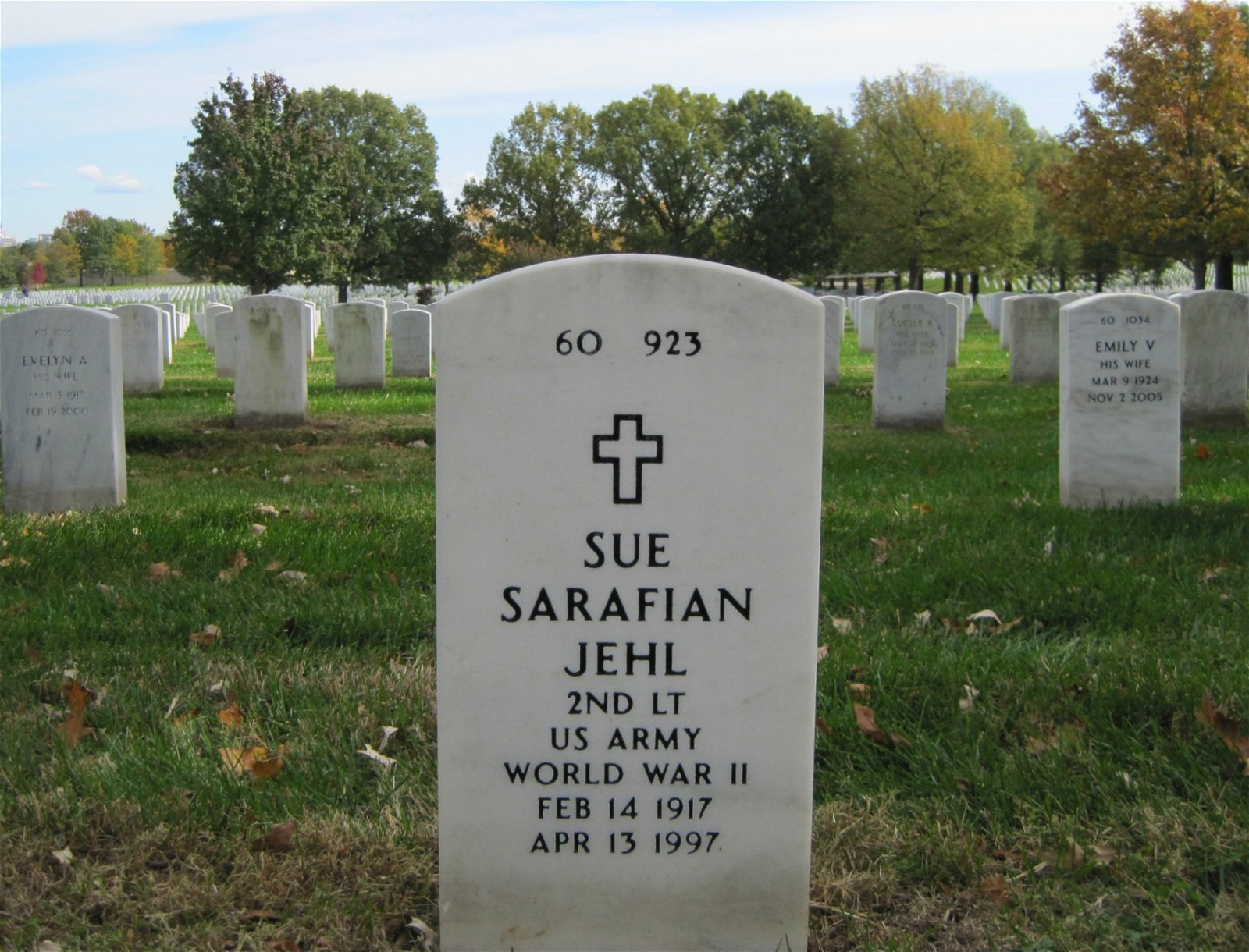
In June 1944, in London (England), General Dwight D. Eisenhower, Supreme Allied Commander in Europe, was making the final decisions about the D-Day Invasion of Normandy, and she was there. In December 1944, in Versailles (France), Allied Generals were attending top secret meetings, and she was there. And on May 7, 1945, in Reims (France), the unconditional surrender of all German forces was signed by General Alfred Jodl, and she was there. This extraordinary woman was Sue Sarafian, an Armenian American member of the Women’s Army Corps.
Sue was born on February 14, 1917, in Malden, Massachusetts and was the first child of Shmavon Sarafian and Makroohi Sharistanian, two Armenian refugees who escaped the Genocide and settled in the United States. The Sarafian family later moved to Detroit, Michigan. Sue was the eldest of five and quickly became a role model for her four sisters. She was a kind-hearted teenager, a brilliant student and a proud member of the Armenian Youth Federation (AYF).
After graduating from Highland Park High School and attending Detroit Business University, Sue was employed by the American National Insurance Company. Like any woman in her twenties, she had plenty of goals to achieve and plenty of dreams to fulfill, but the war changed all her plans. Sue strongly believed that every family should contribute to the war effort. Since there were no boys in the family, she decided to join the Women’s Army Corps (WAC). A few weeks later, she said goodbye to her loved ones and headed towards North Africa.
Like most women who served in the US Army in the forties, Sue found herself in a hostile environment where many soldiers and officers did everything they could to make her feel unwelcome and uncomfortable. But little did they know that this Armenian American lady had an appointment with destiny. So day after day, week after week, month after month, Sue ignored sarcastic remarks, paid no attention to sexist comments and simply focused on fulfilling her duties and showing everyone what women were capable of.
A few months after arriving in North Africa, the life of this remarkable woman almost ended. One night, Sue and other members of the Women’s Army Corps were in a truck, heading back to their base, when suddenly, a British vehicle appeared out of nowhere and slammed into their truck. Sue suffered a pelvic fracture and was hospitalized for six months. Once recovered, she immediately returned to duty and was assigned to perform secretarial functions. That’s when Sue was asked to become one of the personal secretaries to General Eisenhower, who was at that time in North Africa. Unlike other members of the Armed Forces, he firmly believed that women should be given important roles in the US Army. Sue later recalled, “The WAC paved the way for women in the military. We were the first. Today they have army officers, Marines, even fighter pilots. A lot of people doubted that women could do the job, but the General was confident. He pushed for it.”
In late 1943, General Eisenhower became Supreme Allied Commander in Europe, and Sue remained by his side. She then witnessed the liberation of France, the collapse of Nazi Germany, the end of tyranny and the victory of freedom. During her service, Sue had the honor of meeting many important figures such as George S. Patton, Omar Bradley and George Marshall. Following the war, General Eisenhower returned to the United States and became Chief of Staff of the US Army. Unlike his other secretaries, Sue decided to stay with him, and among her many duties, she was in charge of writing his memoirs. In 1946, Sue was appointed 2nd Lieutenant. In 1947, she married Colonel Roland R. Jehl, a US Air Force pilot. Shortly after, Sue left the Army and devoted her entire life to her family. She became a mother to three lovely children and later a grandmother to four wonderful grandchildren.
Like so many Armenian American women, Sue overcame obstacles, made a difference, achieved the impossible and showed young girls that through hard work, dedication and perseverance, anything is possible. Paving the way for women in a man’s world wasn’t easy, but against all odds, she did it. By believing in herself, following her path and never giving up, the tortuous road she took became a highway used by generations of women.
Sue passed away on April 13, 1997, in Florida. She is now resting in peace at Arlington National Cemetery.

Editor’s Note: This tribute to Sue Sarafian Jehl was published in honor of Veterans Day, November 11.



Be the first to comment